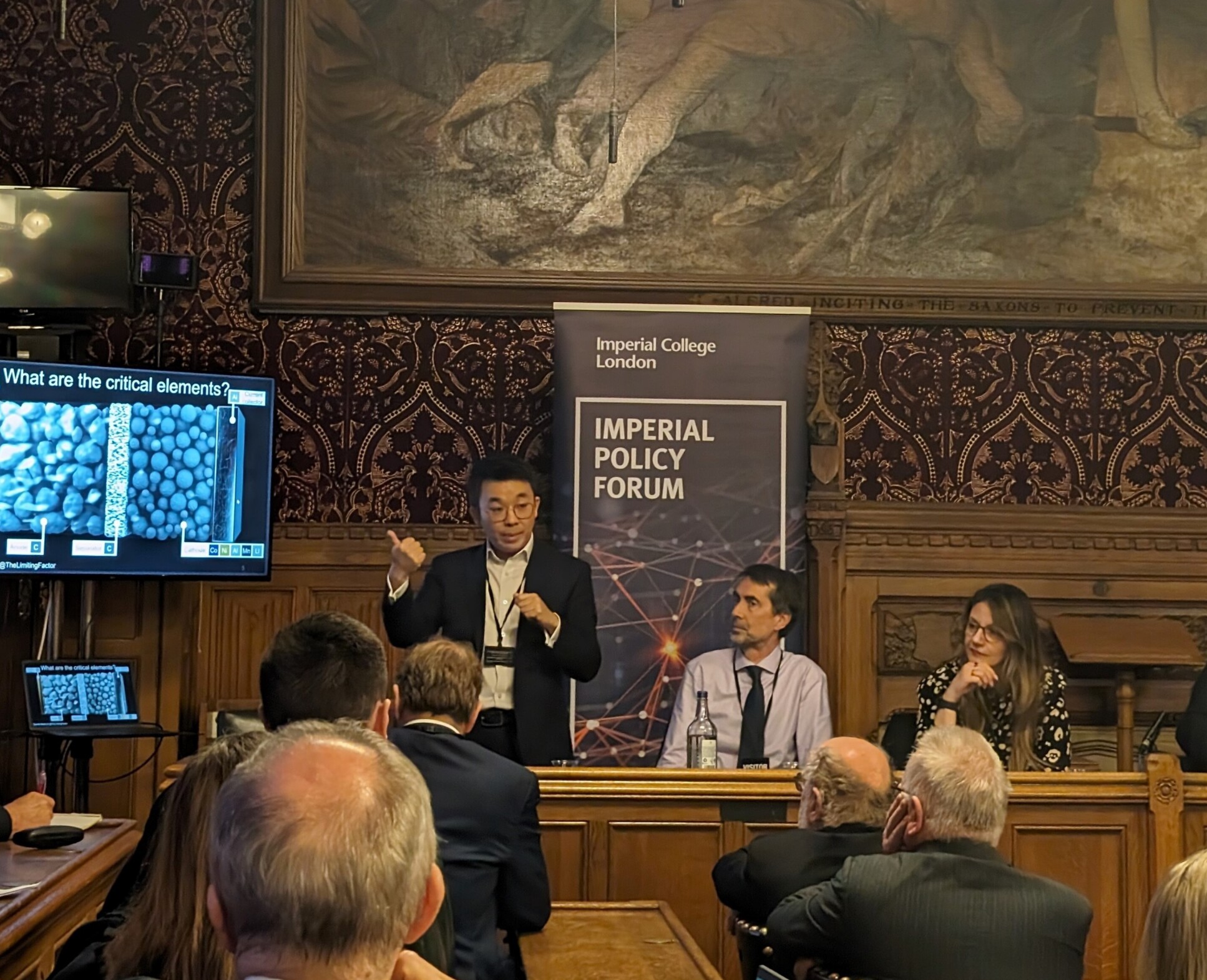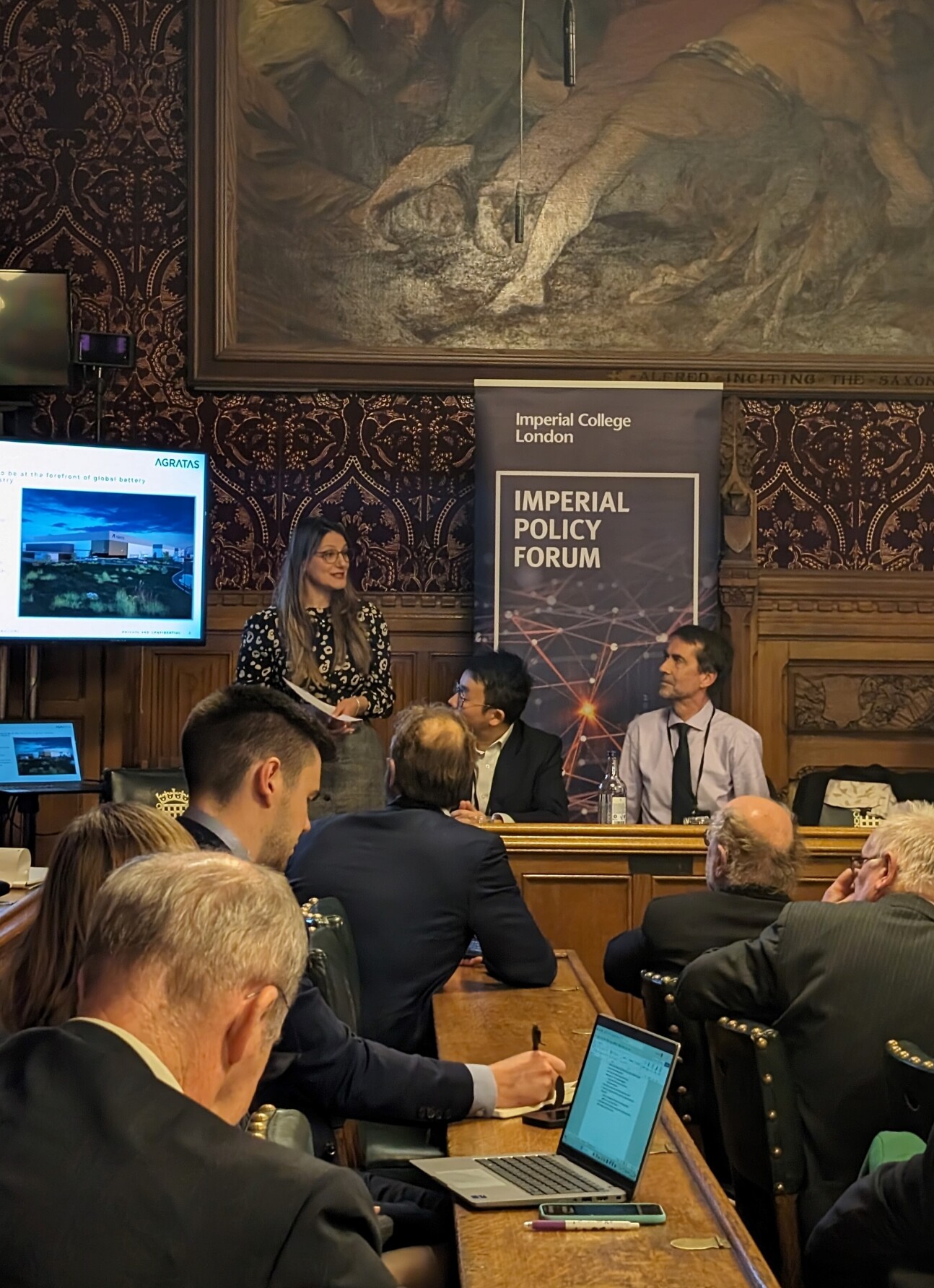Imperial Experts Delve into Future of Battery Technologies at Parliament Discussion
Imperial Policy Forum co-hosted an event with the Parliamentary and Scientific Committee on the Future of Battery Technologies.
This week, the Imperial Policy Forum co-hosted an event with the Parliamentary and Scientific Committee on the Future of Battery Technologies.
The event, chaired by the Committee’s president, Viscount Stansgate, included presentations by experts in the field of battery research and development, and a Q&A session.
The audience heard presentations by Dr Billy Wu, Reader and Director of Research in the Dyson School of Design Engineering at Imperial College London, Martin Dowson, Chief Engineer for Electrification at Warwick Manufacturing Group and Electrification Director at the High Value Manufacturing Catapult, and Valentina Gentili, VP of Global R&D Agratas (formerly of Jaguar Land Rover).
Challenges facing the battery sector
The panel of experts shared their perspectives on what they thought to be the most significant technological and policy challenges the UK will face in expanding its batteries manufacturing base.
Research in batteries is a moving target. The moment you stop innovating, you lose your advantage.Dr Billy WuReader and Director of Research in the Dyson School of Design Engineering, Imperial College London
Dr Billy Wu explained there is great potential that comes from increased demand in batteries thanks to the transition to Net Zero, however, the UK needs to double down on its efforts if it wants to fully harness the economic potential that comes from its research and domestic supply chains. There is also a risk that without continued investment in research, the UK’s innovation ecosystem will stall in its current state, whilst other countries double down on their efforts and take the lead in developing battery technologies of the future.

Martin Dowson stressed the need for policy stability to allow the sector to thrive in the long term. He said it is critical that the pipeline of investments and ongoing research do not lose their momentum. Mr Dowson also explained that strong Government support and involvement is essential, as free-market forces are unlikely to overcome the complexities that developing a batteries supply chain require on their own.
 Dr Valentina Gentili highlighted the importance of championing research and innovation at every stage of battery lifecycle to reap the benefits across the entire supply chain. For example, although it is important to ensure we have a pipeline of new energy storage solutions being developed, we should ensure that our manufacturing capabilities, as well as consumer applications and recycling methods are innovating and adapting at a similar pace.
Dr Valentina Gentili highlighted the importance of championing research and innovation at every stage of battery lifecycle to reap the benefits across the entire supply chain. For example, although it is important to ensure we have a pipeline of new energy storage solutions being developed, we should ensure that our manufacturing capabilities, as well as consumer applications and recycling methods are innovating and adapting at a similar pace.
Throughout the discussion, the panel emphasised significant challenges around battery recycling. Current methods to recoup minerals are too costly and polluting to work at scale, and further research will be essential to ensure the sector can respond to this challenge at the pace needed for the UK’s transition.
Following presentations, the panel answered questions from members of the audience which sparked discussions regarding international competition in battery research, the potential for hydrogen fuel cells as an alternative energy storage solution, as well as challenges when it comes to the remanufacturing of batteries.

